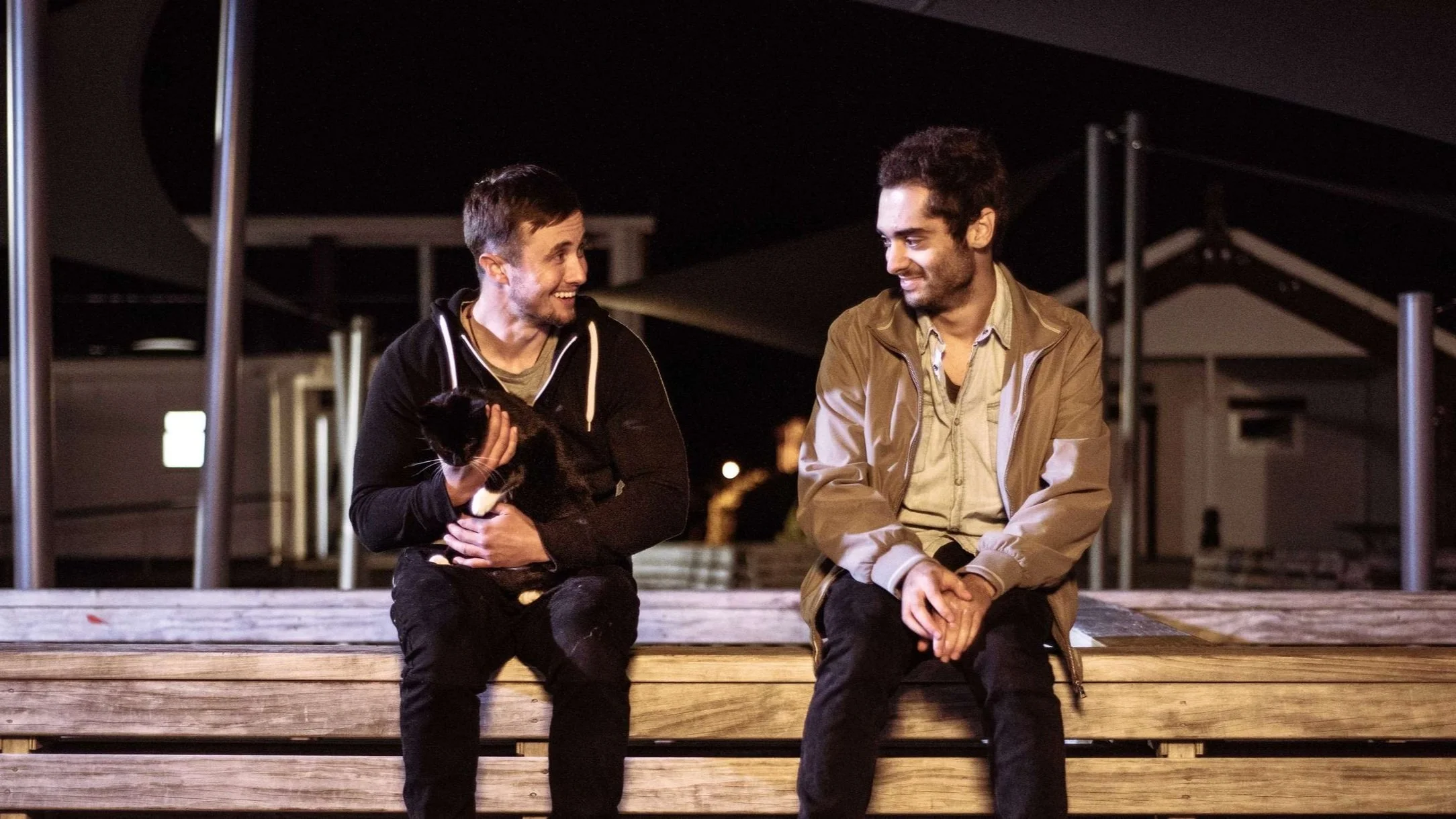Rūrangi
In Max Currie’s New Zealand drama, a transgender activist returns to the remote community of his childhood.
At a time when issues around transgender people can so easily lead to viewpoints which have their own built-in hostility to those who do not share them, it is splendid to have a film which, eschewing propaganda of any kind, gives us an inside view of life as experienced by a trans person. One such piece appeared in 2020 when Sébastien Lifshitz gave us his wonderfully sensitive and insightful Little Girl (Petite Fille) about a seven-year-old who declared that she recognised her real self as being female despite being brought up as a male. The aims behind Rūrangi, a film from New Zealand, are comparable even though this is a tale told with actors.
Elz Carrad plays Caz Davis who after ten years returns from Auckland to his home city of Rūrangi. His mother has died during his absence but his father, Gerald (Kirk Torrance), still lives there. Caz had gone away as a girl but had chosen to leave because he had realised that he wanted to be accepted as male and could not see that ever happening if he were to stay. Now, looking like a man and with a voice to match, he seeks to see his father again. He also looks up past acquaintances such as a Maori woman, Anahera (Awhina-Rose Ashby) and Jem (Arlo Green) who had been his boyfriend before Caz had recognised his situation. During his time away Caz has become a trans activist, but the film is not concerned with that period in his life nor with the procedures in which he has been involved. Instead the film’s basic concern is with the need for acceptance all round: that may at heart be Caz’s own need but it applies no less to others, be that society in general or to people who find themselves close to somebody in Caz’s situation. His father’s initial reaction on his return is that he wants to have nothing to do with him - but that makes it all the more important that his attitude should change and that applies for his own sake as well as for that of Caz.
The publicity for Rūrangi is it pains to stress that over half of the cast and crew identify as gender diverse, that being confirmation that what we see here is no outsider’s view. Understandably that will encourage viewers who favour the belief that stories are best told by those who are insiders and it does mean too that Rūrangi is a deeply felt project. However, this piece has an odd history and one that perhaps helps to explain why it is less effective than one would hope. Although it is being released as a film, Rūrangi was conceived as a web series, one consisting of five episodes. As with any such series, the expectation is that it is likely to be viewed bit by bit over a period of time. But what can work well in that format is not necessarily suited to being shortened and converted into a feature film that will be seen in one go.
It appears that this film version is only about ten minutes shorter than the series. Nevertheless, as presented here it feels bitty and when offered as a concentrated experience it calls for writing that is both more detailed and more convincing. The story being told may have Caz at its centre but it brings in a whole bunch of other concerns: they include Anahera’s concern over society’s treatment of those who like herself are Maoris, her relationship with her culture and her quest to confirm her own sexuality. And yet more is added too: when Gem finds that he still has feelings for Caz, he is confronted by the question of whether or not he is gay. Yet another addition is a story thread connected to Caz’s mother and how she died of cancer as a victim of chemicals used for spraying in the area. Gerald as her surviving spouse is now running a campaign to change the law in order to prohibit it (the local mayor is the villainess of the piece as she opposes him over this). With so much to cram in (enough surely to fuel a longer series), these issues are touched on rather than explored or presented in adequate detail. The same can be said too of Gerald’s attitude to Caz which changes in the course of the film but in abrupt steps rather than emerging as a convincing character arc.
The actors do what they can to make it all work, but there is a world of difference between this and, say, the depth of characterisation that Viggo Mortensen brought to 2020’s Falling. That piece, an in-depth study of homophobia and masculinity, displays the kind of detailed approach that Rūrangi needed and might indeed have had if it had been written as a cinema feature or as a longer series in the first place. Given the importance of the film to those involved in its making, it is a shame that it is not better. Nevertheless, it will surely find an enthusiastic audience among those drawn by the subject, especially if they also enjoy watching TV series more than I do.
MANSEL STIMPSON
Cast: Elz Carrad, Arlo Green, Awhina-Rose Ashby, Kirk Torrance, Aroha Rawson, Renee Sheridan, Ross Harper, Renee Lyons, Ramon Te Wake, Sonny Tupu, Adam Rohe, Tai Berdinner-Blades, Adam Brown.
Dir Max Currie, Pro Craig Gainsborough, Screenplay Cole Meyers and Oliver Page, Ph Johannes Louis, Pro Des Nick Lowry and Henric Matthiesen, Ed Brough Johnson and Dan Kircher Music Lachlan Anderson.
Autonomouse-Peccadillo Pictures.
87 mins. New Zealand. 2020. UK Rel: 25 February 2022. Cert. 15.


